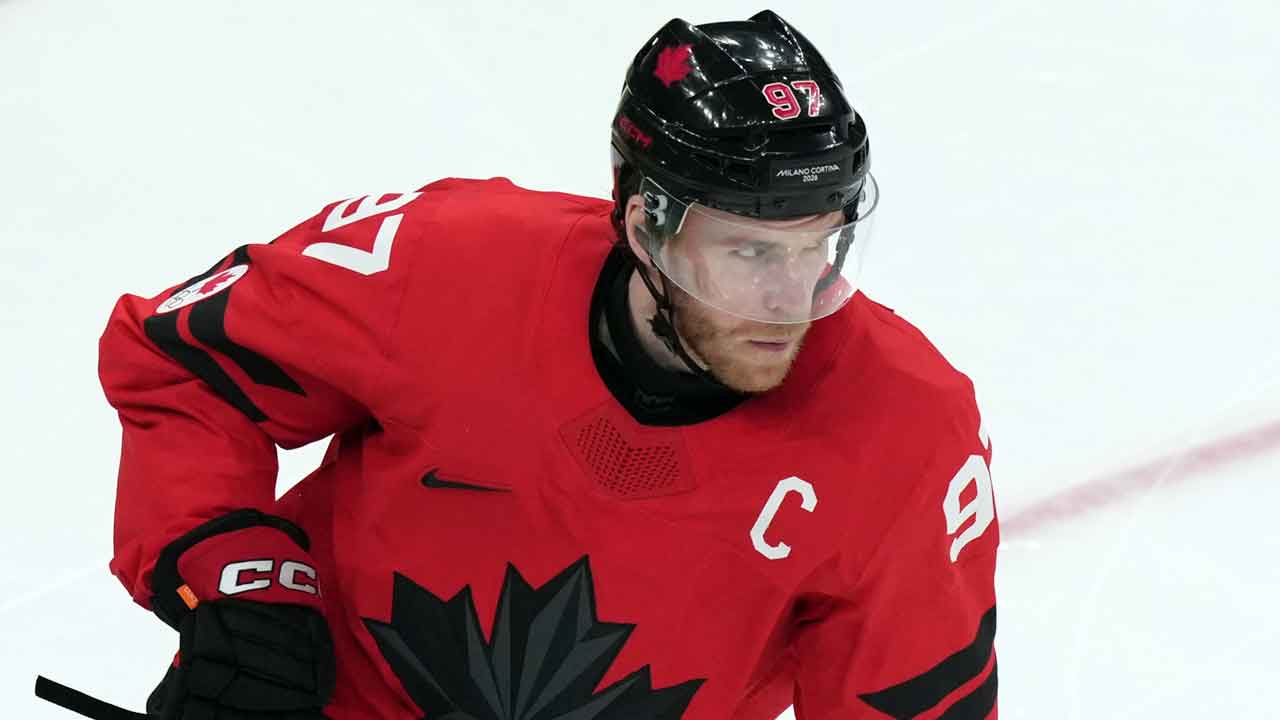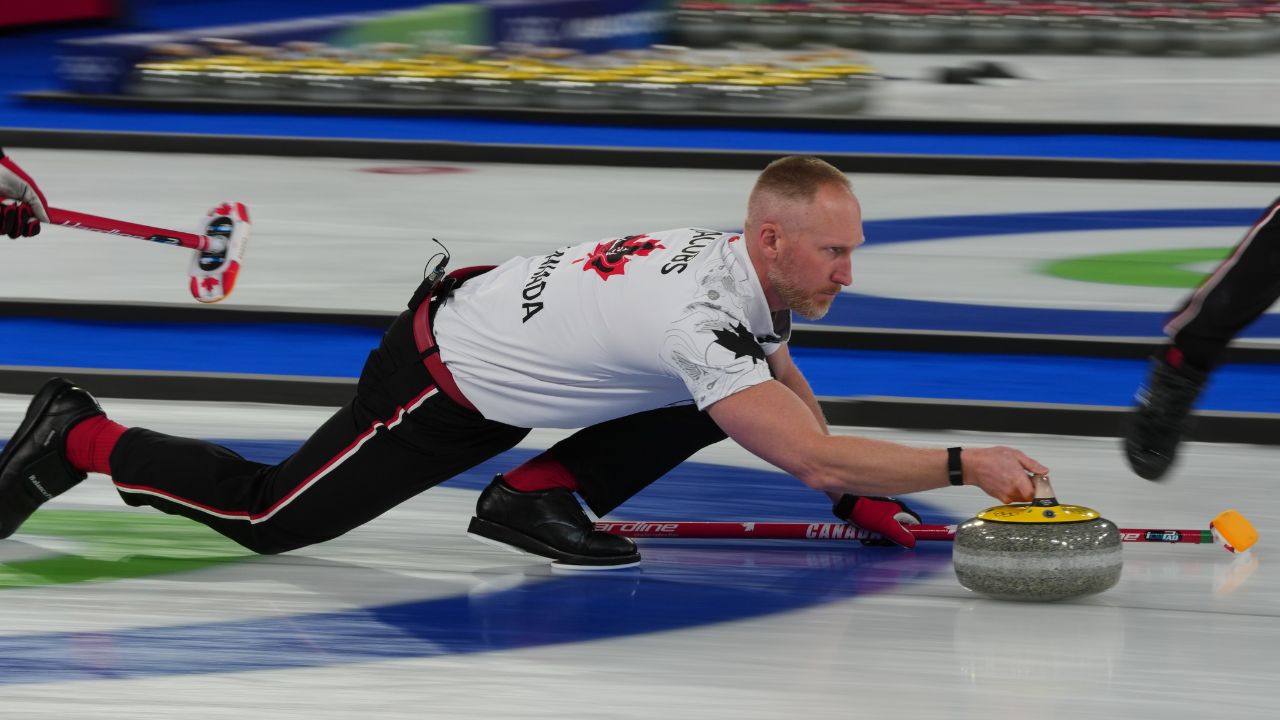
PITTSBURGH – The Vancouver Canucks have had worse seasons, but rarely a more disappointing first half.
Coach Bruce Boudreau said before training camp it would be a “disaster” for his team to miss the playoffs, and with Game 41 looming Thursday against the Tampa Bay Lightning, the Canucks look more than halfway to that outcome already.
With a lineup whose core pieces were unchanged from the group that finished last season 32-15-10 under Boudreau, then was bolstered in the summer by free-agent acquisitions Andrei Kuzmenko and Ilya Mikheyev, the Canucks are three games under .500 and have shown themselves incapable of defending.
Tuesday’s 5-4 loss to the Pittsburgh Penguins was the eighth time in 40 games Vancouver was defeated after building a multi-goal lead, and the Canucks are on pace to smash the single-season National Hockey League record of 13 for such futility.
Even with the Pacific Division’s ponderous playoff pace through the first half of the schedule, the Canucks are eight points adrift of the final wild-card spot. They’re far more involved in the Connor Bedard sweepstakes than the playoff race.
“We certainly had different expectations,” veteran defenceman Luke Schenn said. “It was one of the messages in training camp from the top down that expectations are higher and they expect results. And obviously, putting it on the players, we haven’t delivered.
“We felt we were capable of a lot more and I think everyone kind of had that, you know, real hope and optimism heading into training camp. We didn’t have the easiest start to the schedule and we also didn’t do ourselves any favours (starting 0-5-2), blowing leads and kind of getting behind the eight ball. There’s just no real margin for error when you get off to a start like that. Day to day, it’s challenging. But the challenge is to see who comes out of it, and that’s what makes you a true pro.”
Key Statistics
Record: 17-20-3 (sixth in the Pacific Division)
Goals for: 3.40 per game (ninth in the NHL)
Goals against: 3.93 per game (tied 29th in the NHL)
Power play: 23.9 per cent (11th in the NHL)
Penalty kill: 67.8 per cent (32nd in the NHL)
Best surprise: Andrei Kuzmenko
Captain Bo Horvat has surprised a lot of people by scoring 29 times and hanging with NHL leaders in goals all season. But we knew Horvat could finish; he scored 31 times last season. What we didn’t know is how quickly and well Andrei Kuzmenko, a 26-year-old free agent from the Kontinental Hockey League, would adjust to the NHL and the intensity and demands of its compact and robust 200-foot game.
Even after Kuzmenko chose the Canucks over 31 other teams last summer, there was trepidation in Vancouver because of the franchise’s dismal track record with Russian players. But not only has the shifty winger soared far beyond what anyone expected on the ice, producing 17 goals and 35 points in 39 games, he has fully embraced his new language, city, culture and team. With his poise and personality, Kuzmenko is going to be an NHL star. It may even be for the Canucks – if the team can sign him to an extension before the trade deadline. The UFA-eligible Kuzmenko, otherwise, could become an enticing trade rental and, sadly, just a footnote to an otherwise bleak 2022-23 season in Vancouver.
Biggest disappointment: Brock Boeser
There is a high bar (or low one) in this category. We could talk about the regression of pricey defencemen Oliver Ekman-Larsson and Tyler Myers, goaltender Thatcher Demko’s miserable start and subsequent injury, the failure of key prospects Nils Hoglander and Vasily Podkolzin to improve (or stick) at the NHL level, or almost anything about J.T. Miller. But we’re going with Boeser, the former Calder Trophy runner-up who began the season with a vow to score 30 goals – “this is the year” – and by December had enlisted agent Ben Hankinson to help Vancouver GM Patrik Allvin find a trading partner and new home for the right winger. All this while Boeser begins a three-year, $20-million extension.
At 25, Boeser has endured far too much adversity, including the agonizing death of his father last May. And endless injuries, like the hand accident he suffered at training camp, have undoubtedly undermined Boeser’s progress since he set his NHL high-water mark with 29 goals as a rookie, in 2017-18. On a human level, he is an easy guy to cheer for. But both Boeser’s finishing (eight goals in 32 games) and two-way play (39.6 per cent high-danger scoring chances, 41.1 per cent expected goals, minus-12) have deteriorated this season. It is clear the talented Minnesotan, frequently dispatched by Boudreau to the third line and second power-play unit, needs a fresh start somewhere else. Boeser is a great person, and may yet become a great player. But he will have to make that happen with another team.
Biggest question for second half: How big the exodus, and when does it begin?
Almost as surprising as the Canucks’ first-half performance is that the cast at the midway point is almost the same as when the season began. Had you said in September that the team would be three games under .500 going to Game 41 while earning one of the worst defensive profiles in hockey, the lack of roster change would have seemed impossible, especially since Canucks president Jim Rutherford averaged about one trade per month when he was winning Stanley Cups with the Pittsburgh Penguins. But not even the lame-duck coach has been fired.
New management, on the job only a year, inherited a cap quagmire from former GM Jim Benning and underestimated how difficult it would be to move out money amid a suppressed salary cap. Allvin and Rutherford have a lot to do between now and the March 3 trade deadline. With management married to Miller and his yet-to-begin $56-million extension, Horvat is likely to be traded despite his career season. He should be the centrepiece of the Canucks’ biggest in-season transaction since holdout Pavel Bure was granted his wish out of Vancouver in 1999. Schenn is also expected to be auctioned as a rental and, of course, the Boeser trade mission is ongoing. But the Canucks need more than just two or three new faces, and whether it happens this winter or next summer, Rutherford is expected to orchestrate a significant overhaul to a group that has failed and failed, and failed again, since the playoff aberration in the Edmonton bubble three years ago.






